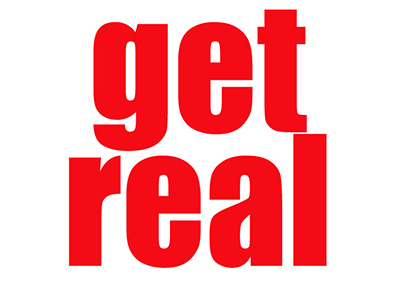
What’s happening in Cambodia’s Education System and How PLF is Responding
In Mid-March when schools closed, over 100 PLF University students fled from Phnom Penh and returned to their villages. Timing was horrible as it was right at the end of the first half; many of them did not get to sit their exams.
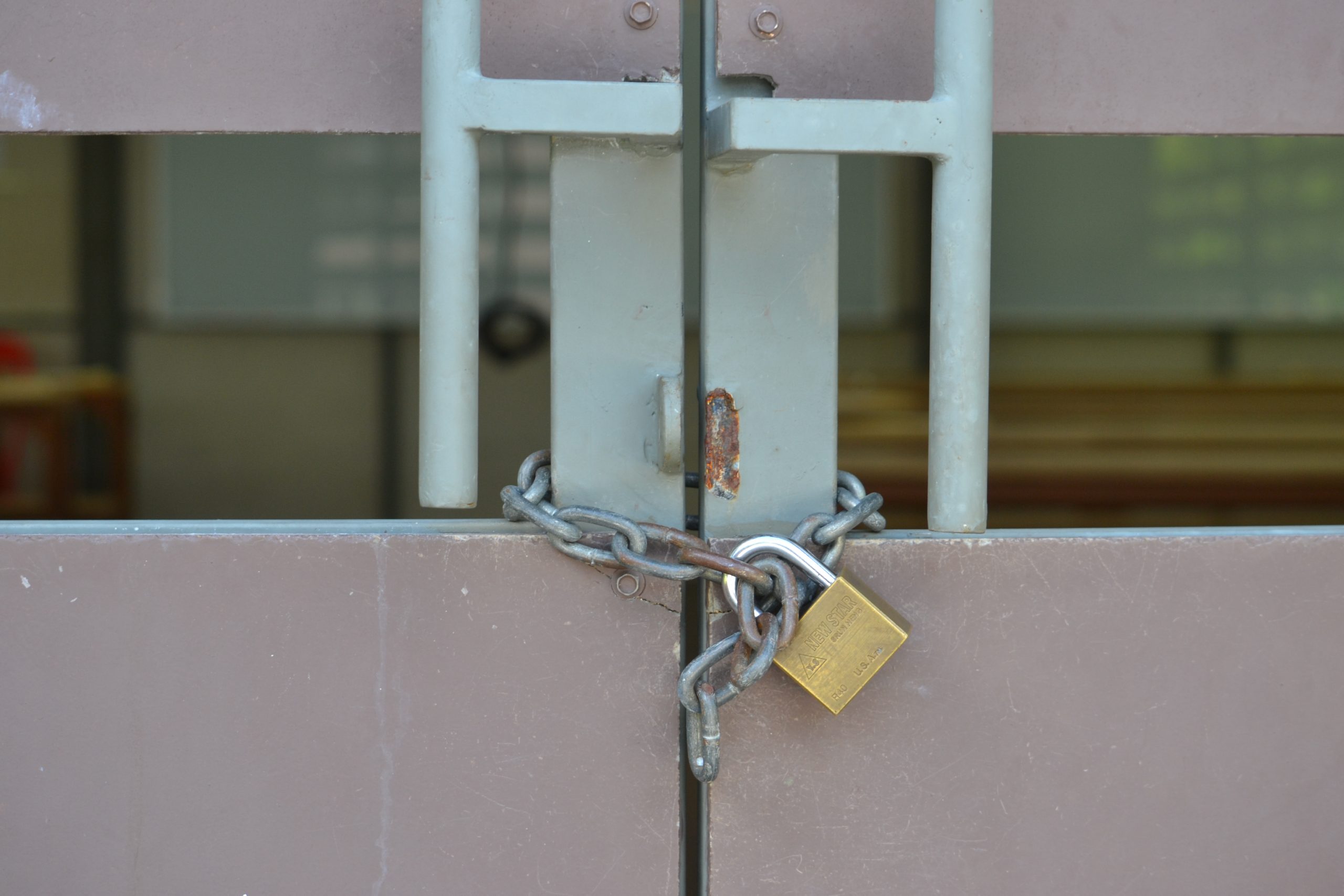
Students in all three PLF dormitories had to be quarantined and then sent back to their villages. 2600 other PLF students, along with millions of other Cambodian children left school suddenly with no instruction of what any of them should do next. Just go home, wash your hands, and don’t gather at school.
Primary School
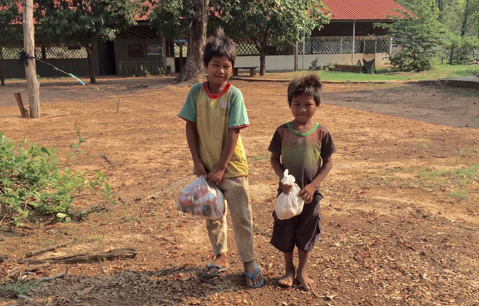
The declaration to not gather at school for any purpose was firm. Thanks to Ponheary’s determination we were given permission to have children come in small groups to school to collect food every 10 days, as long as safety protocols were followed. This we have been doing since March and will continue to do until those children can once again have food at school.
Teachers working in rural areas don’t have things like zoom and google docs or even computers. Or even reliable internet access. Because we had kept all our teachers on the payroll during the crisis we were able to mobilize them and support the printing of reams and reams of exercises to be sent out with students and returned, graded and back again on the food drop schedule.
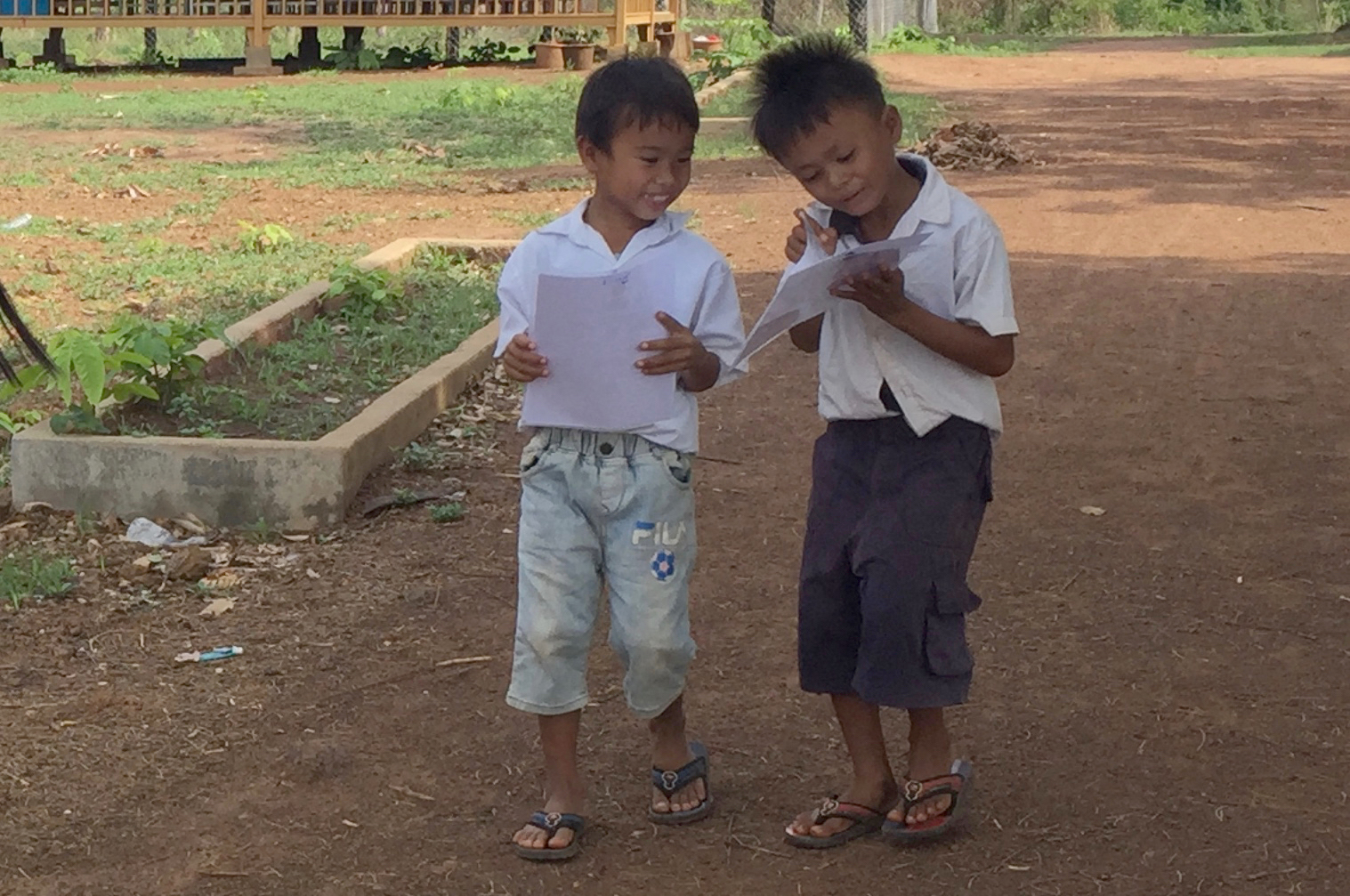
The next attempt had to do with teachers holding classes in various locations in the village for small groups of children. Under a tree, under someone’s house, with none of the usual resources that are available in their classrooms at school.
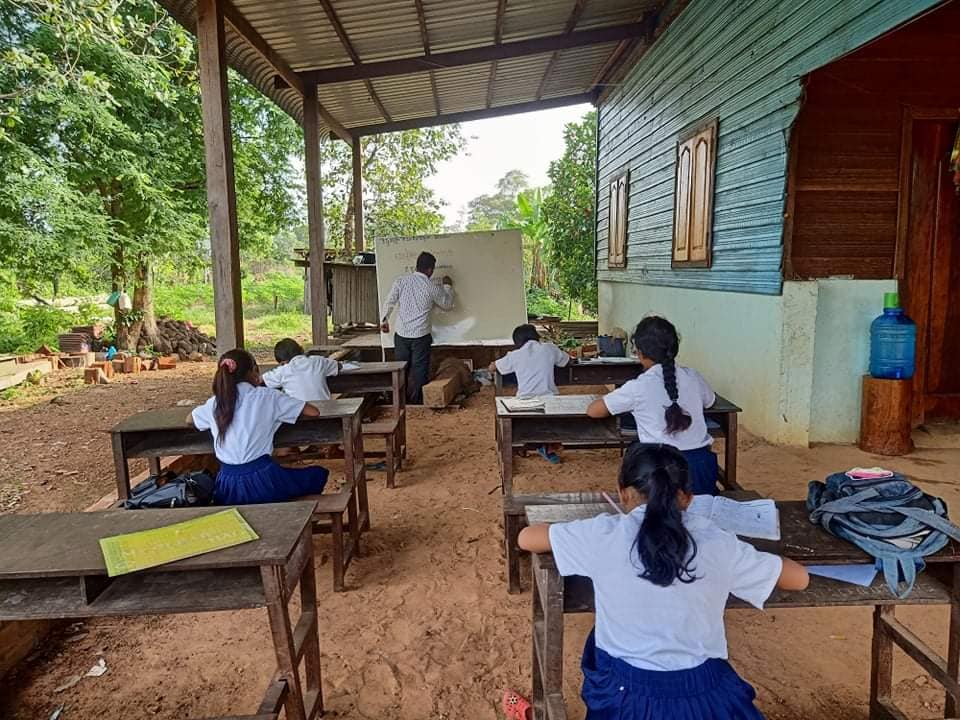
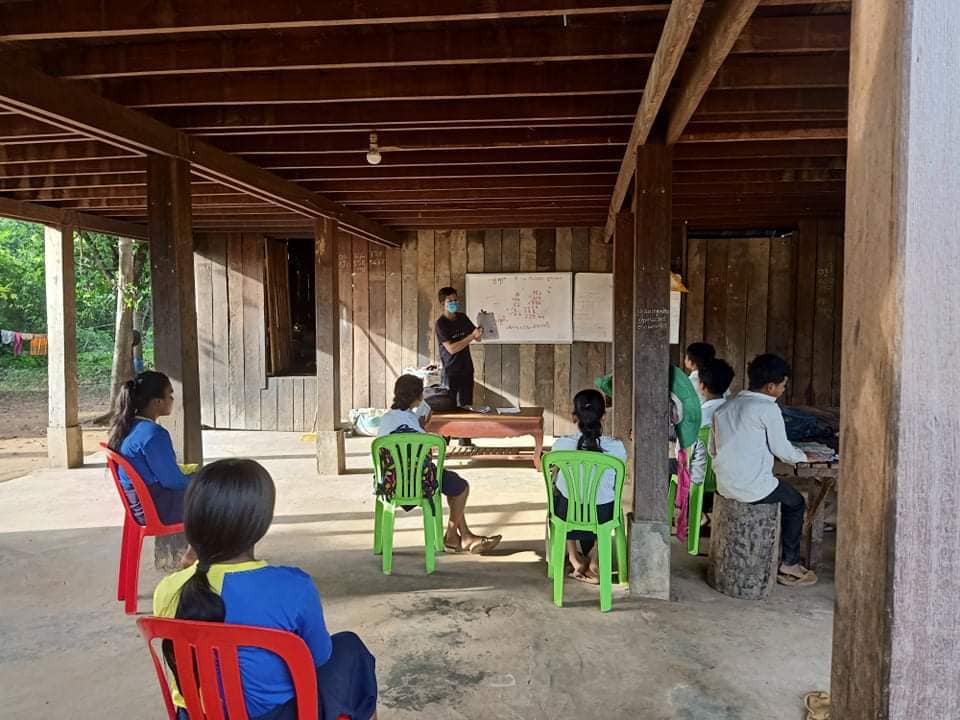
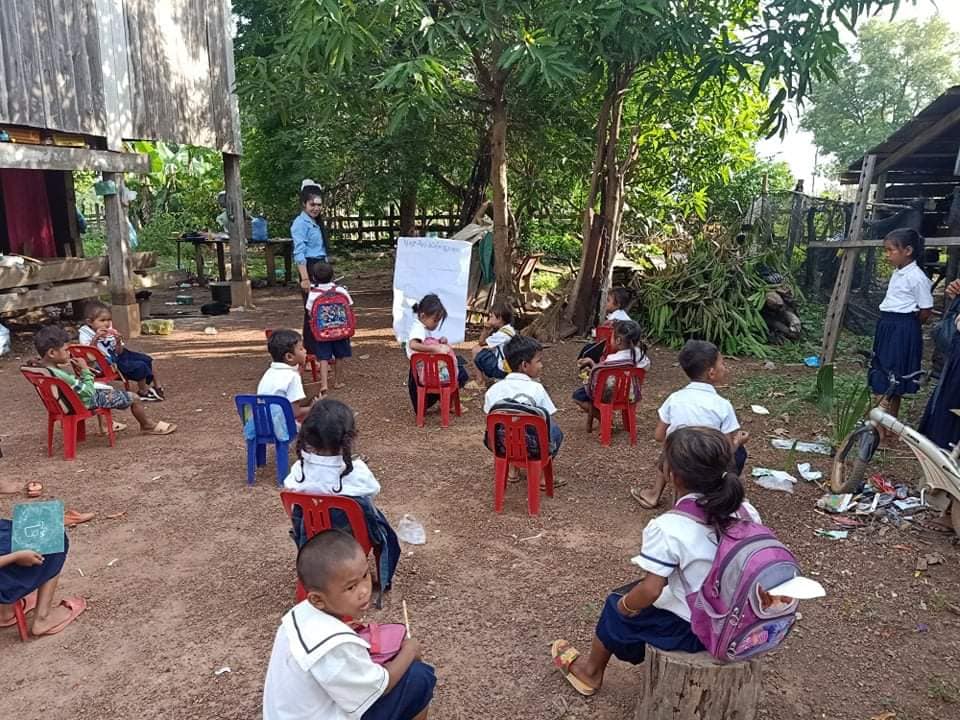
Don’t get me started on why it’s okay to drag the school desks out and set up ramshackle classrooms outside the school but it’s not okay to limit class sizes and let the teachers teach at school where better protocols could be followed and resources are available. Where medical care and food are available.
Why is that? A simple blame game, nothing more. It makes no sense whatsoever.
The government gave us permission to open Libraries and perform non-contact book lending. We have been doing this at Koh Ker, Romchek, and Knar for a couple of months and business is booming. Having the libraries open has been exceedingly helpful to students and we’ve seen a massive uptick in the number of books being checked out every week by students across all ages.
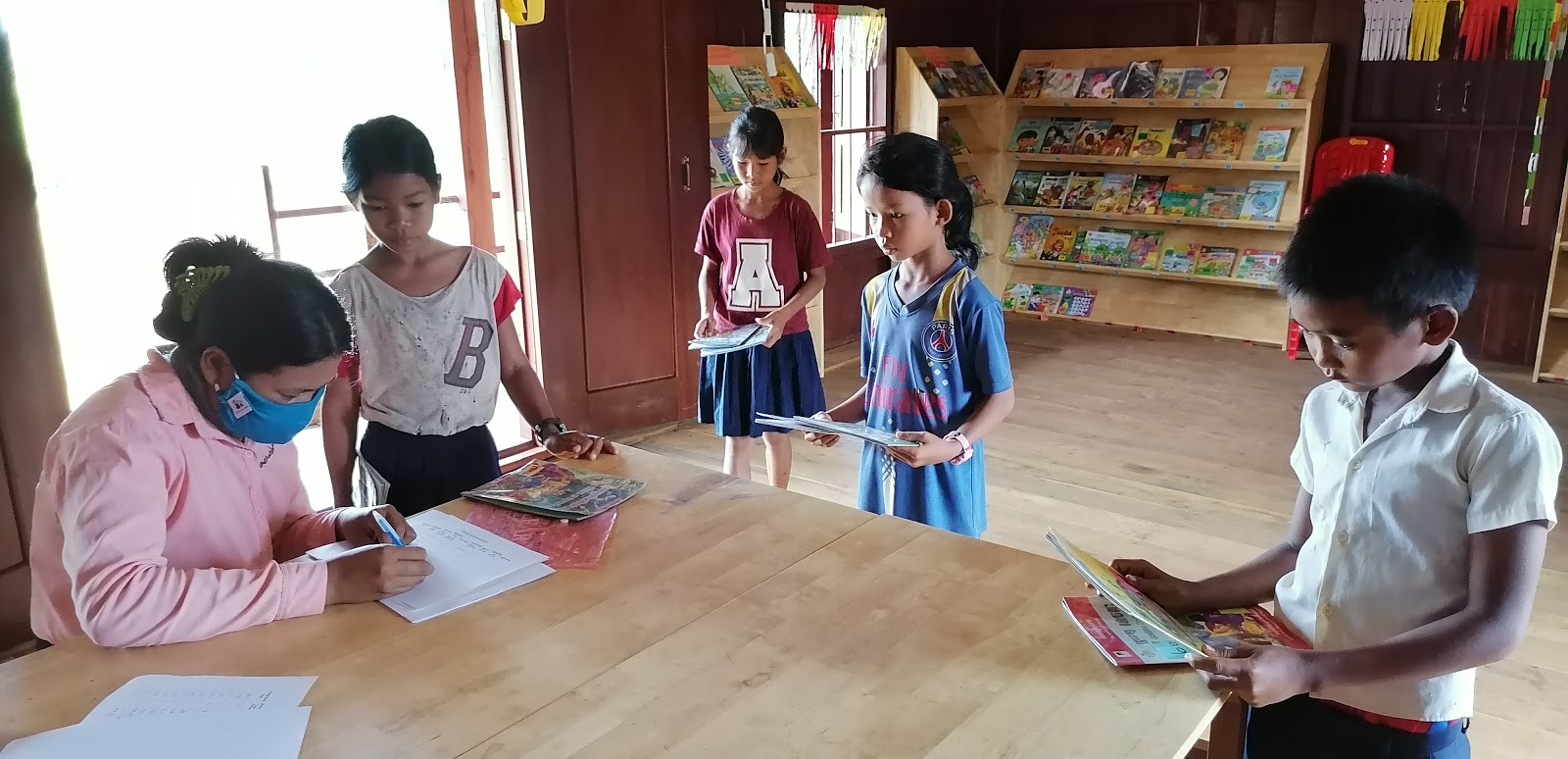
We’ve been buying books like crazy!
The government laid out online classes for students to try and complete the year; it is something this country has never ever attempted and the obstacles to its success are extraordinary. They have done an okay job for about 25% of the population who can access classes, mostly confined to those in urban areas. Of course, the vast majority of our 2800 students don’t fall in that demographic.
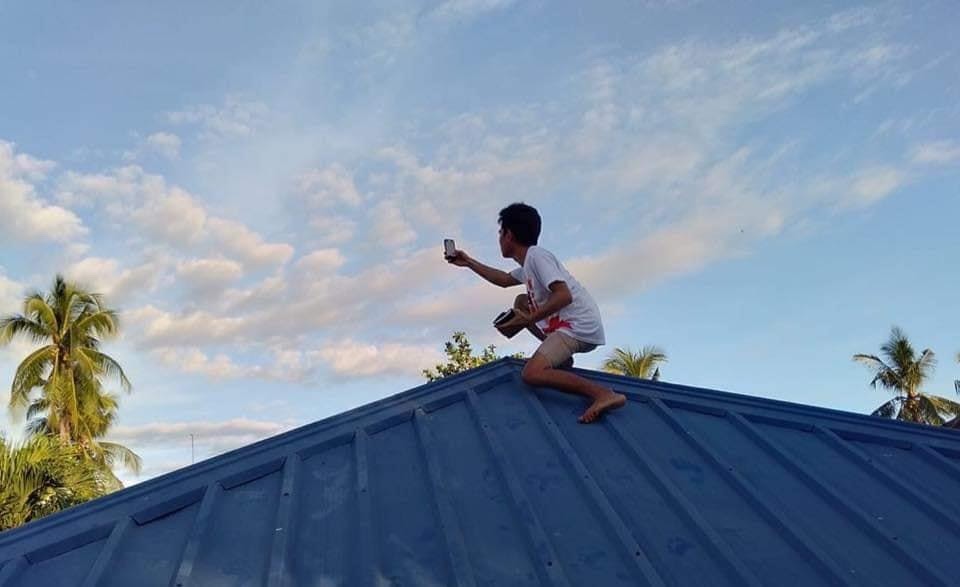
Our students and 1.5million others just like them have fallen through a crack. The education divide that separates the rich from the poor just became a gaping chasm.
It’s heartbreaking to think of what’s coming.
We believe students in primary school should be held back one year when school begins again. A fourth-grader who is just learning to read and then misses half a year of school gets passed to grade 5 even though they are not ready, will get about halfway through the year, fall to the bottom of the class and then just drop out.
We will push back against this. But we can’t do much in the primary school arena until school is re-opened. Currently, our teachers are busy writing review curricula specifically around literacy. Students who need remedial reading and writing classes to get them caught up will get them. We hope that will be enough to help them hang on when they get passed forward to a grade they were not prepared for.
SECONDARY SCHOOL
We’ve been able to find more solutions for our High School students but are equally worried about how much school they’ve missed.
At Knar, Tchey, and Srayang, we cobbled together some AV equipment and are broadcasting the online classes for grade 12. We are broadcasting grades 10 and 11 at Srayang. At Tchey we had to rent a restaurant to get that job done as we cannot use the classrooms at Tchey.
We’ve been thrilled to have our furloughed Uni students coming to help lead these classes to help with classwork and assignments. Someone there to answer a question makes a world of difference and our Uni students seem to take great joy in helping the next generation.
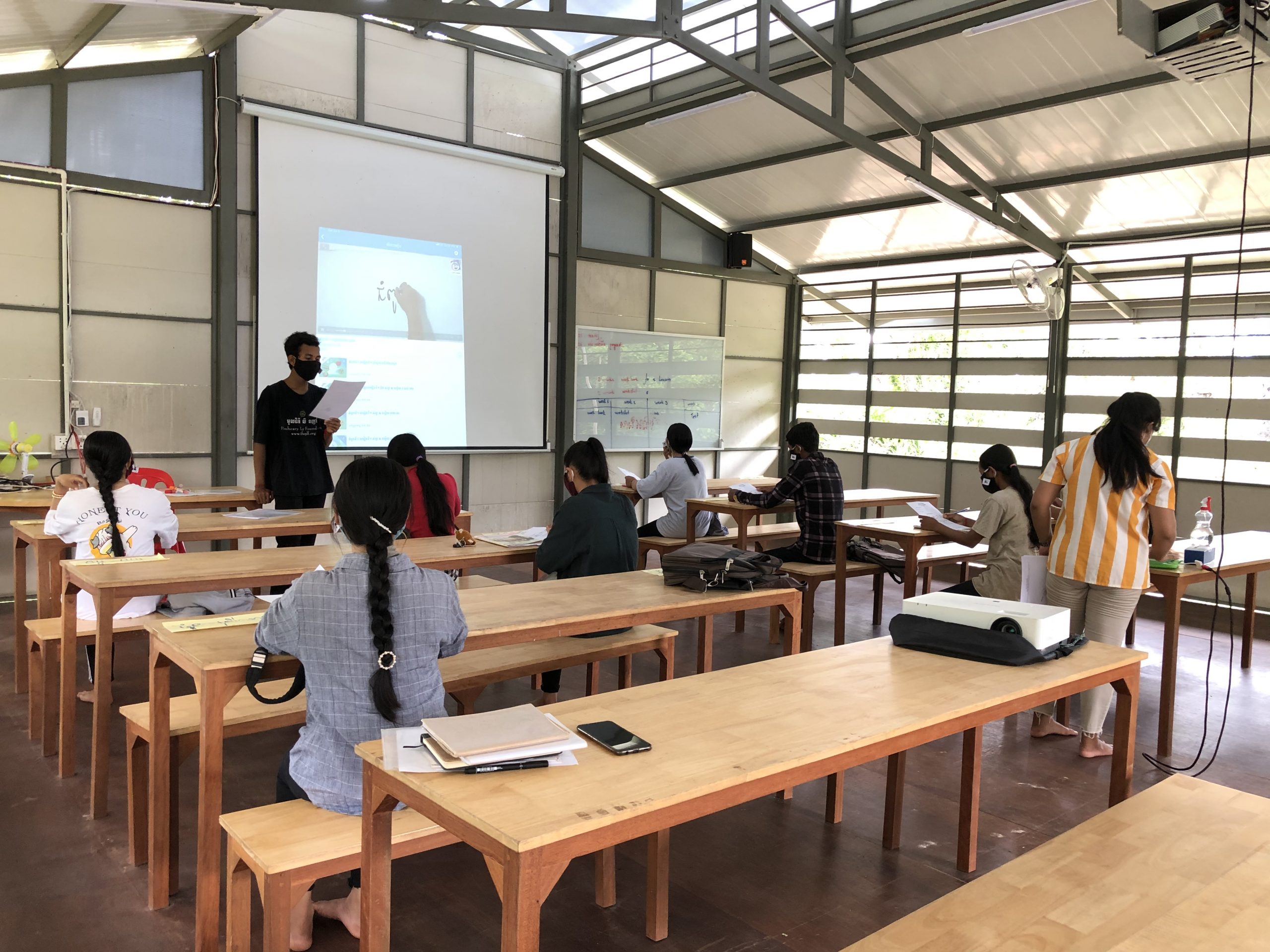
Knar Learning Center
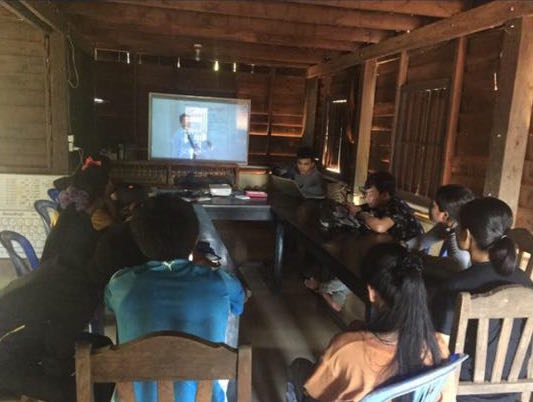
Srayang
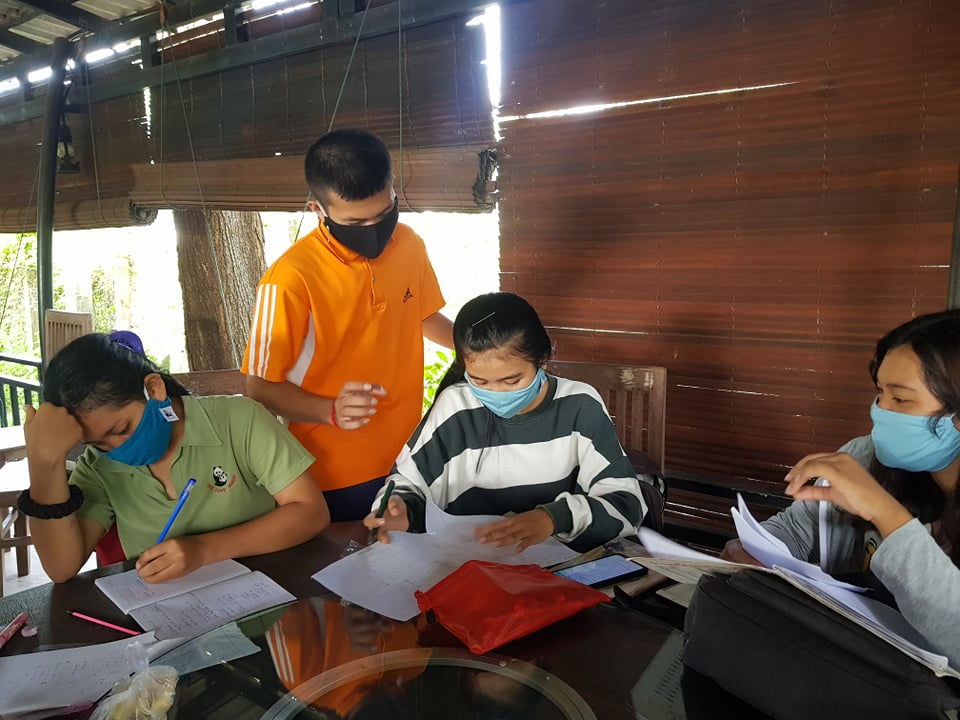
Restaurant at Tchay
Now that we’ve got spaces where we can safely gather smaller groups of students, we’re also getting workshops back up on the rails. Guest speakers are sending in videos and our workshop trainers are pulling together new things to share with students.
At the Dorm in Siem Reap, grade 12 students remained in residence and it is there that we launched a pilot using Koompi laptops, which we hope to scale up when school starts. We’ve launched Google Classroom and devoted volunteer Pat has been sending the students research projects from California. In addition, students have access to Koompi Academy and are test-driving other resources we are collecting for future use.
The learning about digital delivery of classes is at warpspeed and we’re having to do that in places where the electricity is dodgy, internet services are insufficient and personnel qualified to lead advanced math classes are pretty hard to come by.
Students are stymied by the way the material is presented. Teachers are just “doing their own thing” everywhere. Some are holding live classes using Telegram which is a joke as there may be 70 students on the call with 70 different background noises going on. Most teachers do not allow any questions to be asked. Exercises are given and no one has a way to print them out, do them, shoot them, and send them back. When they do, teachers don’t return graded work much less review questions that have been missed.
A lot of what the government is rolling out is on youtube so at least noise can be controlled and students can pause and replay them, but again, no feedback loop, no help with classwork or homework. How do you learn like this? Nobody does.
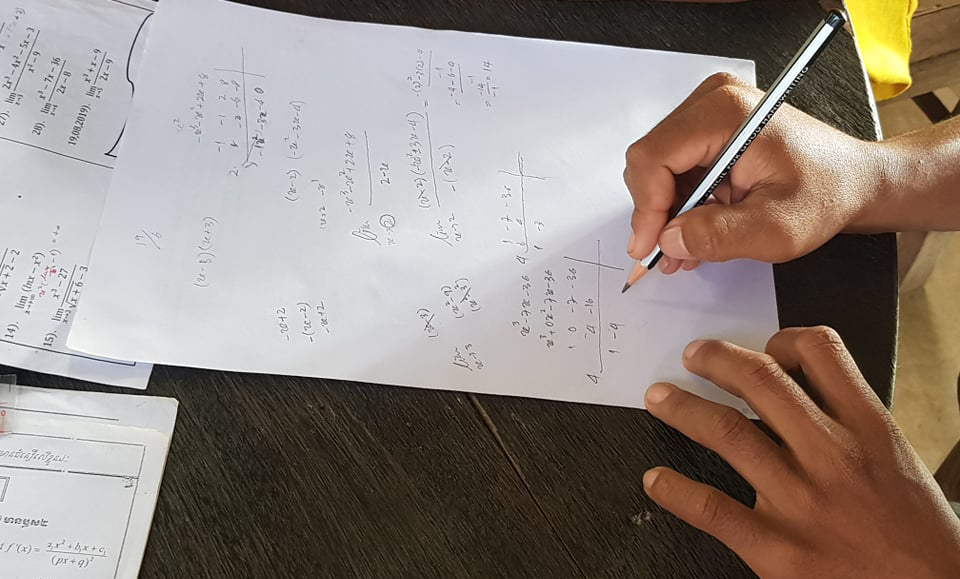
In the beginning of online classes, a private company that normally charges for them gave the classes free to grade 12 students. These classes are much better than the government classes but just this week, they’ve started charging for them again and with as many students as we have, we’ve had to go back to the government offerings. We’re hoping they will reverse that decision since national exams have been pushed out to December. What date in December? Nobody knows.
Students are currently taking exams for the second half of the year. No students were in class during that time and the online classes that were available were pretty much worthless to most students (the ones who could access them). However, surprise! everyone passed. Interestingly, the scores were almost the same as semester one. One wonders if they just scored the students the same regardless of what their actual score was. No one will ever know.
Again, high school students will be passed to the next grade and will not be prepared. For us, this has potentially dreadful consequences for PLF University Scholarships in the year ahead. Removing a national exam score from the equation means we’ll be making those decisions without a critical piece of information. We also don’t have monthly scores from the teacher for the last 6 months to see how the student performed in class. We’re going to have to raise the bar quite high for students to earn the scholarship or risk our first-ever Uni dropouts in the years ahead.
Our current University students are equally flummoxed.
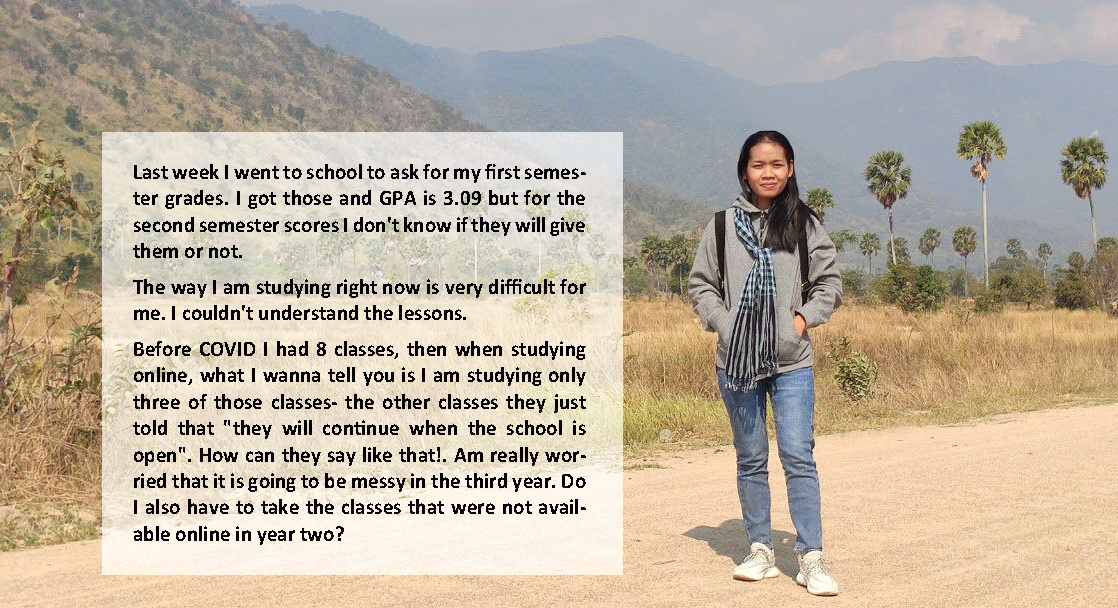
“What else can we do?” is the question on our minds every. single. day.
While delivering these woefully inadequate government classes to students, we’re building as many supports under it as we can. Bringing in our furloughed University students to help with Math, Science and Language. Finding auxiliary resources online to help students understand the government classes. Helping them with assigned classwork.
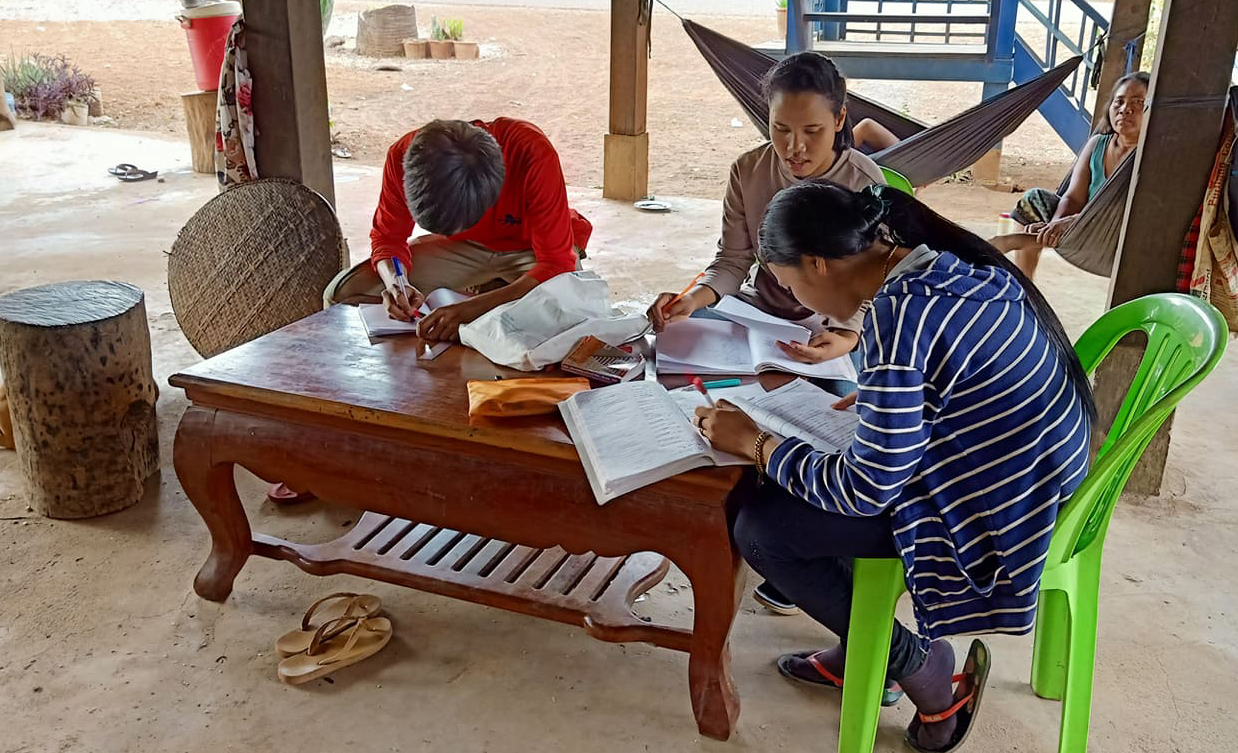
Building study groups. Making books available for borrowing. Giving urban students a small stipend to expand their data plans. Transporting students at the drop of a hat because the school wants them to come and sit an exam. Whatever we can do, we’re doing.
We’ve reopened the computer labs where that’s been possible (Urban and at Knar) and letting grade 12 students come to finish up their modules and get their certificates before the school year is over. This will be important to the ones going off to college.
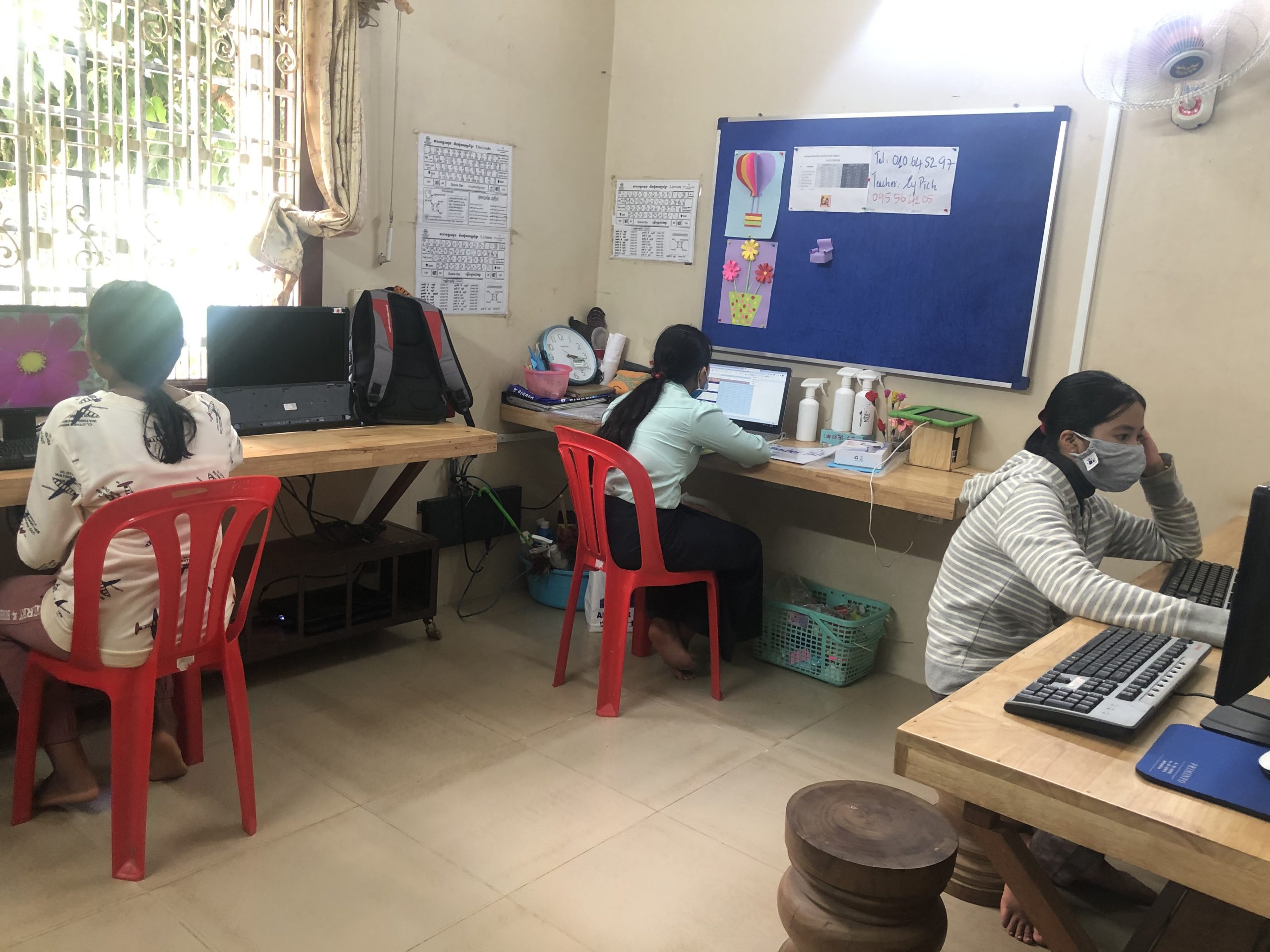
We’re transforming facilities. Getting ready for when the real work begins which will be at the start of school. Whenever that is.
COVID will be a consideration when school reopens, like everywhere. If the government proceeds with their plan to have 3 days in the classroom and 3 days “studying online” then at the primary school level we’ve decided we’re going to hire other teachers to come and use the second half of the day to put those days back in.
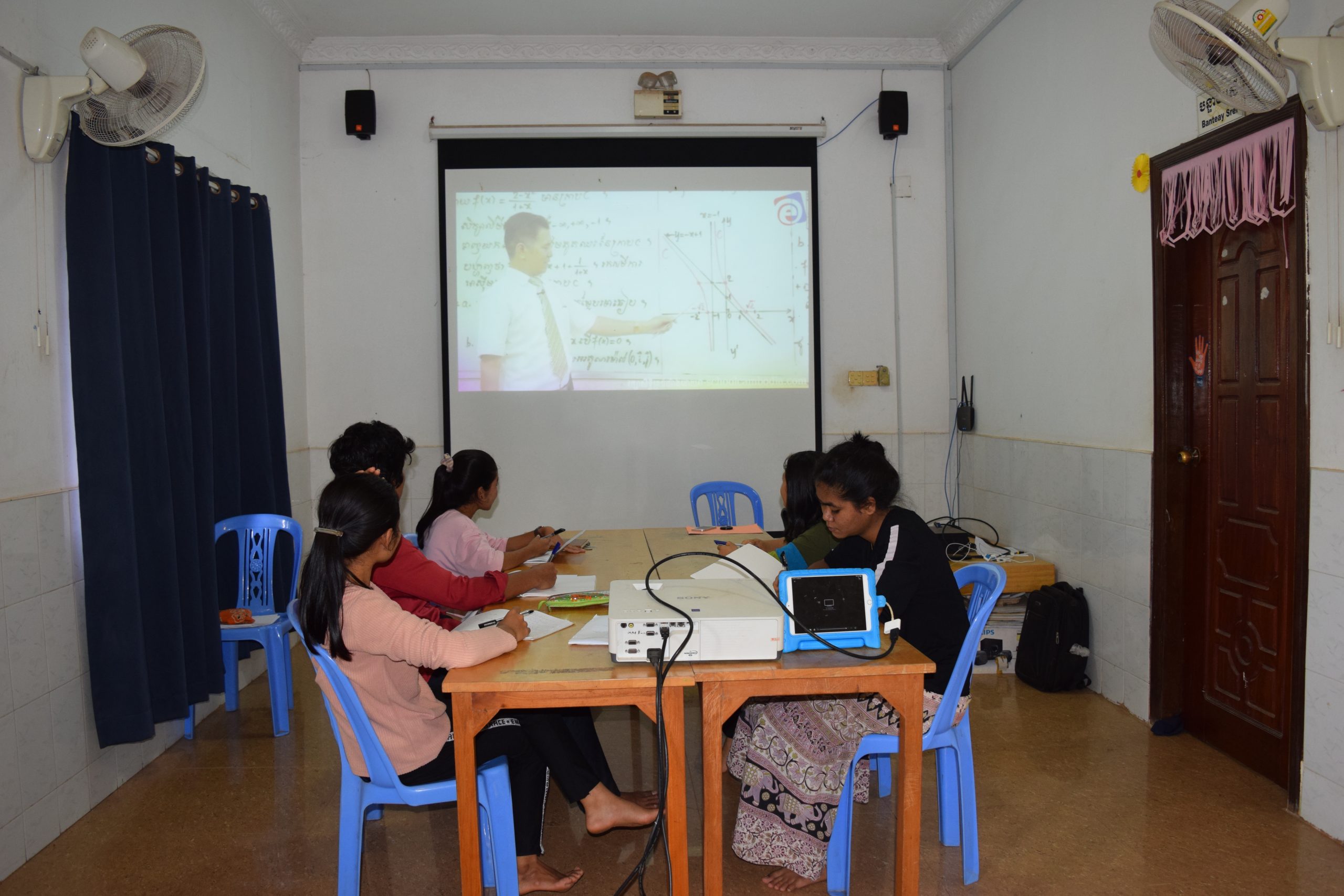
Classrooms will need Audio Visual equipment; we are going to have to figure out how to improve broadcasting using only 3G. We’re putting in more washing stations. Getting students used to new protocols.
We’re examining every what-if scenario and trying to make a plan for each one. We’re mastering Plan B. And C. And D.
We won’t lie; it’s exhausting at the moment, but we feel good about the things we’ve accomplished and what has been prepared to support students in the year ahead. We don’t know exactly what that will look like, but one thing we do know is that it will look nothing like it has before.
In a few years, I’ll write another post reminiscing about “the COVID Time” and wax poetic about how we were forced to bring on a new reality and how great it all is…but not today.
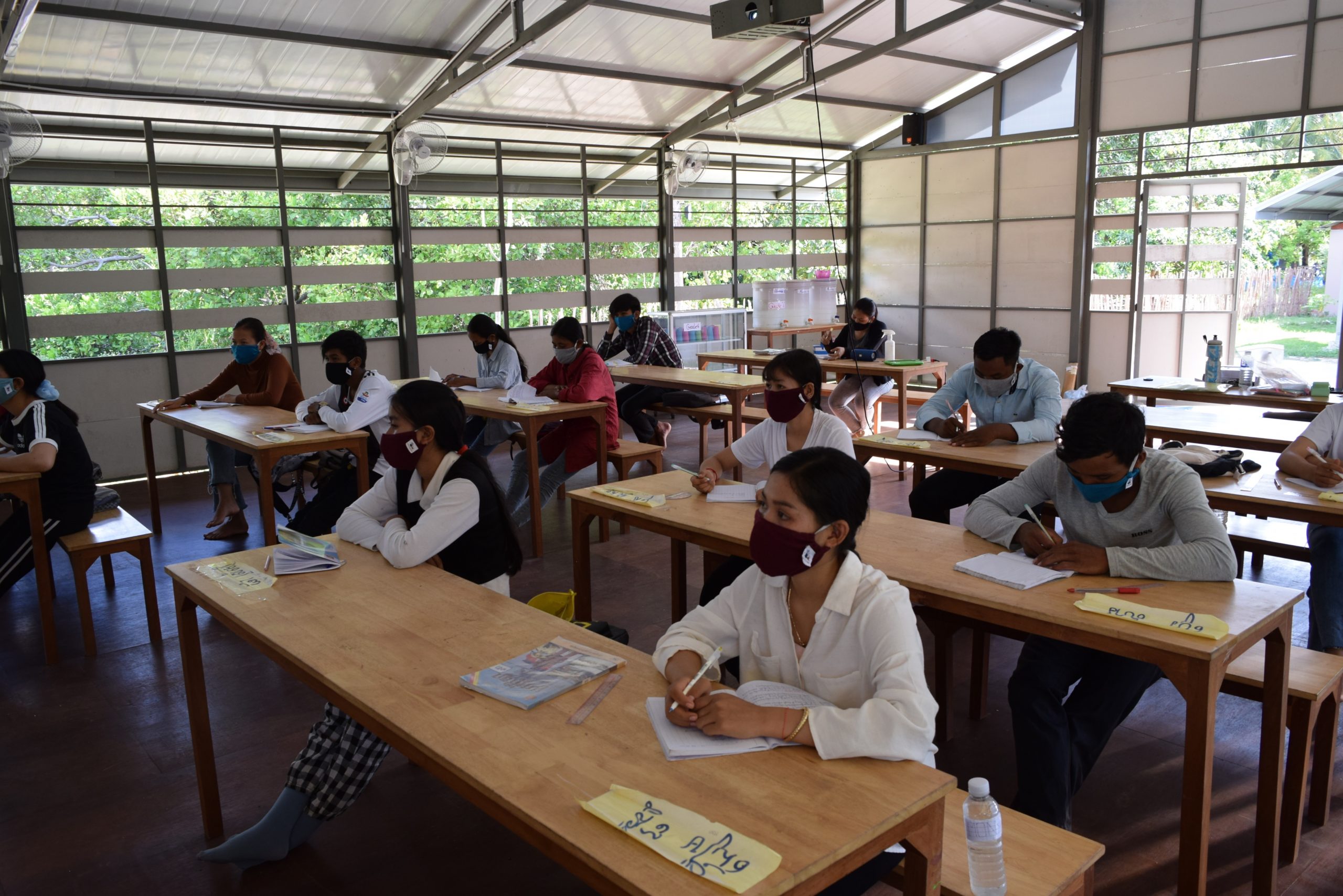
We are going to need things we don’t usually need at the start of school. AV equipment, loads of data time. Devices. Adapters. Endless printing of study guides. Gallons and gallons of alcohol, hundreds of masks, a ridiculous number of thermometers.
If you can help us with any of those things, we’d be grateful!
Like the sound of our programs and want to get involved, but not sure how?
For as little as $10 a month, you could contribute to the ongoing education of our students. $120 goes a long way in Cambodia: that’s 5 village children on the road to education, with access to school and clean drinking water for half a year. Or a million other things, all of which coalesce into the tools needed for life to change for the better!
Follow our Instagram or Facebook accounts. Like, comment on or share our posts – Do it. It’s free. And it’s a huge help for us!
Have some questions?
Email us for a chat at [email protected]

Recent Comments